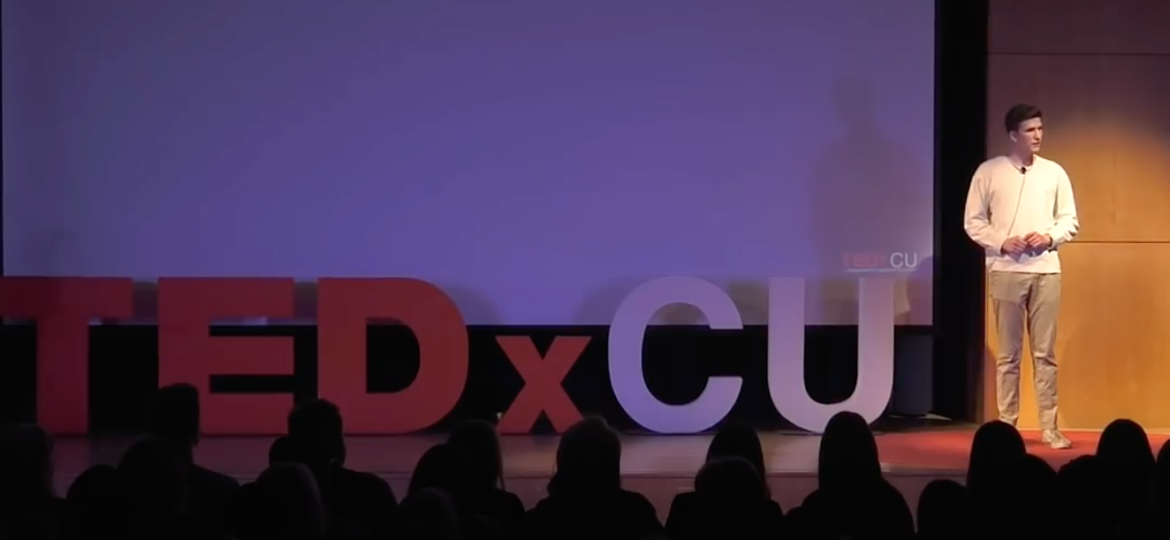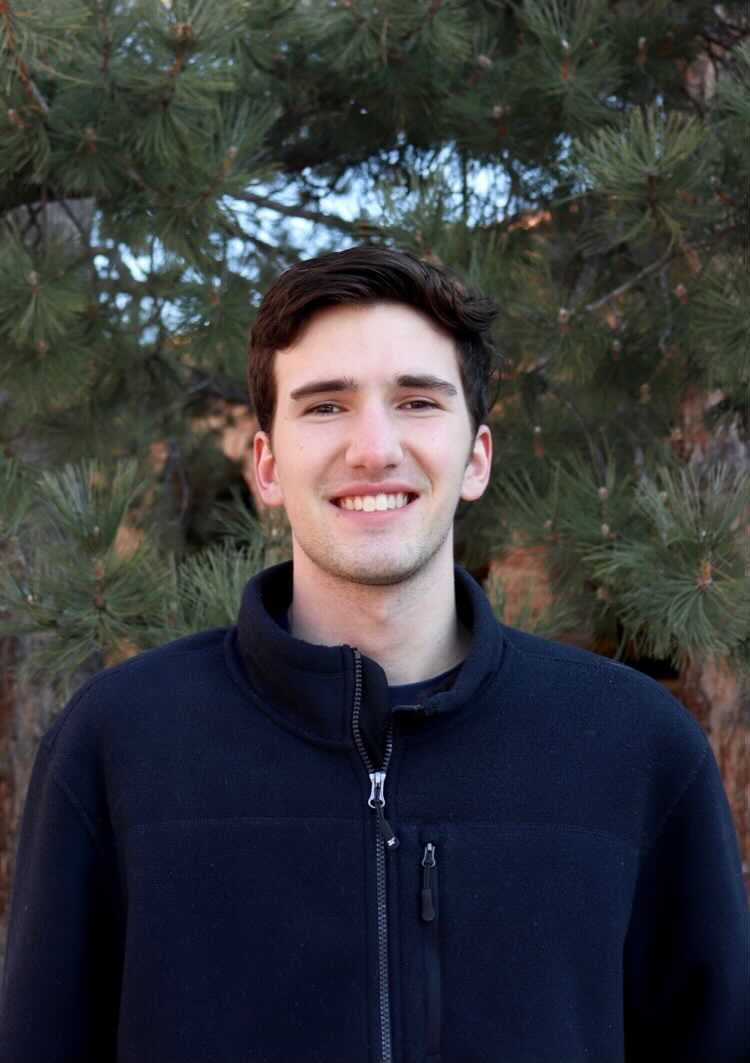
Coping in the aftermath of a shooting
Brent Cary, gun violence activist and TEDx speaker, emphasizes the importance of community in dealing with grief following a shooting.
By Areyana Proctor and Marissa Lapointe
Mass shootings are far too familiar to Coloradans. From Columbine High School to the Aurora movie theatre, to Arapahoe High School and now the King Soopers in Boulder—residents have been faced with fear, trauma and grief witnessing their communities harmed by senseless acts of gun violence.
 Brent Cary, economics major and senior at the University of Colorado Boulder, was born and raised in Denver, CO. Unfortunately, Cary knows the impacts of gun violence far too well. Growing up, Columbine High School was down the street from his home and the Aurora movie theatre was no more than 15 minutes away.
Brent Cary, economics major and senior at the University of Colorado Boulder, was born and raised in Denver, CO. Unfortunately, Cary knows the impacts of gun violence far too well. Growing up, Columbine High School was down the street from his home and the Aurora movie theatre was no more than 15 minutes away.
Though nothing could have prepared him for the fear he experienced when his school—Arapahoe High School in Centennial—became the site of another shooting.
Cary—a freshman at the time—was in the school’s sports swimming pool when the gunman opened fire in the school’s library. “I was in swim class—we were all in the swimming pool doing drills and a girl ran in screaming at the top of her lungs saying there is a person shooting in the library,” he said.
As one can imagine, no one really knew what was happening. Once everyone got out of the pool and filed into the locker room, a student was able to pull out their computer to find that there was indeed an active shooter situation, Cary recalled.
“[I had an] older brother at high school with me, and it was concerning because I didn’t know if my brother or friends were okay,” Cary said.
He recalls that once he returned home after school—alone in his room—a wave of emotions hit. “Someone that I knew came looking to hurt people,” Cary said. Although Cary did not know him well, the gunman and Cary were on the debate team together—he was one of the leaders. According to Cary, he was a troubled person. There were warning signs he said—leaving him with an extreme sense of guilt and sadness.
That sadness has lasted with Cary—a sadness that Boulder residents have felt in some scope following the King Soopers shooting. For him, hearing about yet another shooting in place the calls home, triggered feelings of sadness as well as anger and frustration. “I’m sick of hearing about it,” he said.
“[We] can’t be safe anymore,” Cary said. He emphasizes how casual shootings have become in recent years– and just days later the news is different.
Feelings of anger, frustration, fear, and anxiety are not uncommon—grief is a very individualized process.
Ellie Krause, a psychotherapist in Boulder, said many of her clients have known someone or have been close to a mass shooting. Following a mass shooting, many people face grief and anxiety she said, and everyone handles it differently.
However, what is essential to processing grief is to talk about it—whether that be with family, friends or a professional. Cary said his biggest piece of advice to someone dealing with grief following this kind of tragedy to speak about it. “What feeds a vicious cycle is to keep it in,” he said.
The Office of Victim’s Assistance (OVA) at CU Boulder also emphasizes the importance of community when dealing with individuals that are dealing with grief from trauma. According to Director of OVA Jessica Ladd Webert, “people are more likely to go to their friends and family way before they ever see a professional or potentially report.”
Mental health accesses and resources are accessible, but for some, there is still a reluctance or inability to receive external help. Webert explains that when listening and speaking with someone that is telling you about a traumatic situation, it is important to give them your attention, validate their emotions, and avoid just telling them to go and report it or see a therapist, like it is easy for most people to do.
Webert stresses the importance of “[giving] them back that control and making that person feel empowered. Our office really comes from an empowerment model. We like people to make informed decisions.”
Webert talks about a colleague of hers that did research on the traumatic stress symptoms in people that were at 9/11 versus the people that were in Hurricane Katrina. The study found that people who had experienced Hurricane Katrina had higher levels of traumatic stress than those who experienced 9/11.
This is because after 9/11, people had got out onto the street and interacted with others. During Hurricane Katrina, people were stuck in their houses, and could be alone for days or weeks. The connection and community after 9/11 was what helped people to end up having lower levels of post-traumatic stress. Webert says,“They were moving their body. It was very sad, but not everyone had as much post-traumatic stress because of moving their body and connecting with the community.”
Webert also mentioned that it is just as important to make sure we are taking care of ourselves as well, especially when a loved one comes to us for support. In order to support them, individuals also need to be able to support themselves.
Cary echoes similar feelings as Webert but also emphasizes the importance of using his voice following the trauma he endured.
In 2019, Cary gave his first TEDx talk as part of the TEDxCU speaker series. This platform gave him the opportunity to discuss his own experiences while providing ideas of ways we can solve the complex issue of gun violence.
“I think directly following the shooting at my high school, I was very much opinionated but not nearly as vocal,” he said. “The thought that I might be providing the puzzle pieces to solve this problem is somewhat therapeutic, wonderful feeling to hope that I may be helping.”

